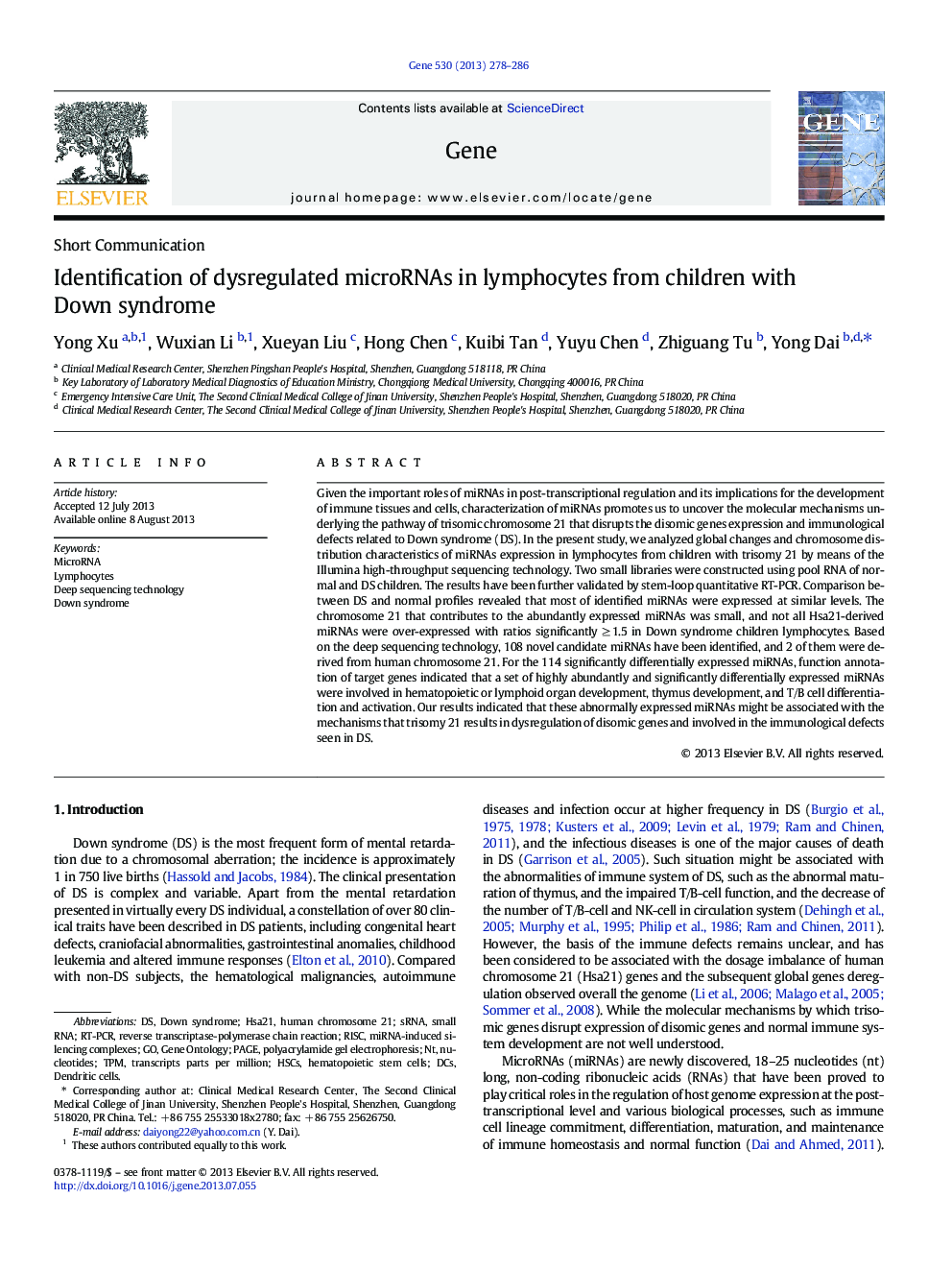| Article ID | Journal | Published Year | Pages | File Type |
|---|---|---|---|---|
| 2816802 | Gene | 2013 | 9 Pages |
•We characterized the miRNA expression profiles in DS lymphocytes with DeepSeq.•The chromosomal distribution characteristics were analyzed between DS and control.•2 novel miRNAs genes have been proved to be derived from human chromosome 21.•114 miRNAs were significantly differentially expressed between DS and control.•Abnormally expressed miRNAs might be associated with DS immunological defects.
Given the important roles of miRNAs in post-transcriptional regulation and its implications for the development of immune tissues and cells, characterization of miRNAs promotes us to uncover the molecular mechanisms underlying the pathway of trisomic chromosome 21 that disrupts the disomic genes expression and immunological defects related to Down syndrome (DS). In the present study, we analyzed global changes and chromosome distribution characteristics of miRNAs expression in lymphocytes from children with trisomy 21 by means of the Illumina high-throughput sequencing technology. Two small libraries were constructed using pool RNA of normal and DS children. The results have been further validated by stem-loop quantitative RT-PCR. Comparison between DS and normal profiles revealed that most of identified miRNAs were expressed at similar levels. The chromosome 21 that contributes to the abundantly expressed miRNAs was small, and not all Hsa21-derived miRNAs were over-expressed with ratios significantly ≥ 1.5 in Down syndrome children lymphocytes. Based on the deep sequencing technology, 108 novel candidate miRNAs have been identified, and 2 of them were derived from human chromosome 21. For the 114 significantly differentially expressed miRNAs, function annotation of target genes indicated that a set of highly abundantly and significantly differentially expressed miRNAs were involved in hematopoietic or lymphoid organ development, thymus development, and T/B cell differentiation and activation. Our results indicated that these abnormally expressed miRNAs might be associated with the mechanisms that trisomy 21 results in dysregulation of disomic genes and involved in the immunological defects seen in DS.
